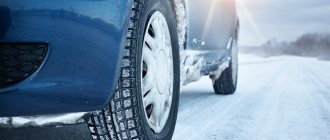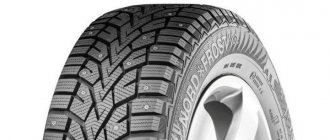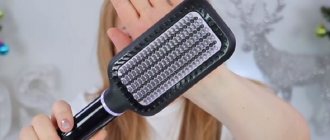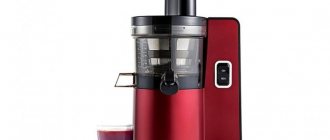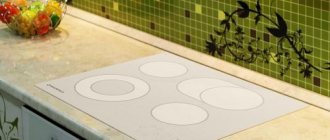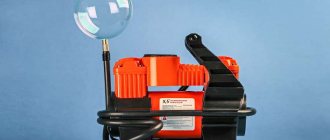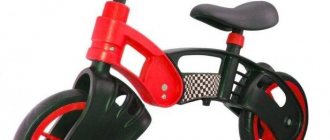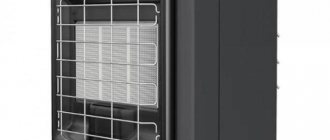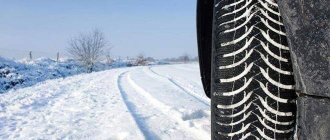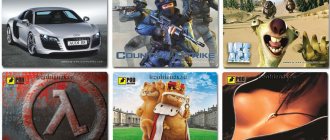Rating 2021 of the best winter studded tires for SUVs and crossovers (SUVs) according to reviews from motorists: summary technical characteristics of tires, standard sizes with prices for them in online stores in your city
| Photo | Name | Rating |
| Triangle winter tires | ||
| Triangle PS01 | Average price: 4209 rub. | |
| Triangle TR757 | Average price: 4306 rub. | |
| Kormoran winter tires | ||
| Kormoran SUV STUD | Average price: 6750 rub. | |
| Bridgestone winter tires | ||
| Bridgestone Blizzak SPIKE-02 SUV | Average price: 11510 rub. | |
| Firestone Ice Cruiser 7 | Average price: 4271 rub. | |
| Winter tires Yokohama | ||
| Yokohama Ice Guard IG65 | Average price: 10330 rub. | |
| Michelin winter tires | ||
| Michelin X-Ice North 4 | Average price: 14450 rub. | |
| Winter tires Continental | ||
| Continental IceContact 2 | Average price: RUB 12,472. | |
| Nokian winter tires | ||
| Nokian NORDMAN 7 SUV | Average price: 8240 rub. | |
| Nokian HAKKAPELIITTA 8 SUV | Average price: RUB 11,684. | |
| Nokian HAKKAPELIITTA 9 SUV | Average price: 14,250 rub. | |
| Winter tires Viatti | ||
| Viatti Bosco Nordico V-523 | Average price: 5576 rub. | |
| Tigar winter tires | ||
| Tigar ICE | Average price: 4910 rub. | |
| Tigar SUV ICE | Average price: 6840 rub. | |
| Nexen winter tires | ||
| Nexen Winguard WinSpike WH62 | Average price: 6060 rub. | |
Triangle winter tires
Triangle PS01
121 reviews
- Speed index:
R (up to 170 km/h) / T (up to 190 km/h) - Spikes:
yes - Diameter:
15 / 16 / 17 - Profile width:
185 / 195 / 205 / 215 / 225 / 235 - Profile height:
45 / 55 / 60 / 65 / 70 - Rating:
4.76
Advantages:
- low price
- quality
- balances normally
- soft
- controllability
Flaws:
- the stud is unstable
- the spikes quickly became unusable
185/65 R15
195/55 R15
195/60 R15
195/65 R15
205/55 R16
205/60 R16
205/65 R15
215/55 R16
215/55 R17
215/60 R16
215/60 R17
215/65 R16
215/70 R16
225/40 R18
225/45 R17
225/55 R16
225/60 R17
235/65 R17
245/55 R19
275/65 R18
Triangle TR757
111 reviews
- Speed index:
Q (up to 160 km/h) / T (up to 190 km/h) - Spikes:
yes - Diameter:
14 / 15 / 16 / 17 / 18 - Profile width:
175 / 185 / 195 / 205 / 215 / 225 / 235 - Profile height:
45 / 55 / 60 / 65 - Rating:
4.87
Advantages:
- low noise
- decent braking
- road grip
- soft
- the price is adequate
Flaws:
- tanned
- balancing
175/65 R14
185/65 R14
185/65 R15
185/70 R14
195/65 R15
205/55 R16
205/60 R16
215/45 R17
215/55 R17
215/65 R16
225/45 R18
225/50 R15
225/50 R16
225/60 R17
235/55 R18
235/60 R18
235/65 R17
245/70 R16
265/65 R17
275/55 R20
Features of winter tires for SUVs
According to some motorists, jeeps with increased cross-country ability do not need to be equipped with separate winter tires, because the vehicle’s potential is quite enough to overcome almost any snow and ice obstacles in an instant. However, in practice the situation is completely different: as soon as a car equipped with summer tires gets onto a country road covered with snow, the car enthusiast will regret that he did not purchase high-quality winter tires.
The best winter tires for SUVs must meet a number of requirements. Firstly, studded and friction tires should increase the car's handling, which is achieved due to a high level of grip on roads covered with ice and snow. Secondly, a specialized tire has a shorter braking distance. The advantages of winter tires, which are ideal for SUVs in Russian winter conditions, lose their meaning with the onset of heat, which negatively affects contact with the ground.
If a motorist has a jeep at his disposal, he should know as well as any service center specialist how to choose winter tires for an SUV. The presence of high-quality tires is a guarantee of safety for both passengers and the owner of the vehicle. It should be taken into account that a machine that is large in terms of weight is subject to greater inertia; this aspect increases the sliding path in the reverse order. By the way, its stability depends on the car’s ground clearance (these values are inversely proportional).
Kormoran winter tires
Kormoran SUV STUD
42 reviews
- Speed index:
T (up to 190 km/h) - Spikes:
yes - Diameter:
16 / 17 / 18 - Profile width:
215 / 225 / 235 - Profile height:
55 / 60 / 65 - Rating:
4.79
Advantages:
- price
- Controllability
- Holds the road well
- tread pattern
- softness
Flaws:
- noisy
215/65 R16
215/60 R17
225/60 R17
225/65 R17
235/65 R17
225/55 R18
235/60 R18
Bridgestone winter tires
Bridgestone Blizzak SPIKE-02 SUV
89 reviews
- Speed index:
T (up to 190 km/h) - Spikes:
yes - Diameter:
15 / 16 / 17 / 18 / 19 / 20 / 21 - Profile width:
205 / 215 / 225 / 235 / 245 / 255 / 265 / 275 / 285 - Profile height:
40 / 45 / 50 / 55 / 60 / 65 / 70 - Rating:
4.68
Advantages:
- controllability
- quality
- reliability
- keep the road
- no problem on ice
Flaws:
- No
205/70 R15
215/60 R17
215/65 R16
215/70 R16
225/55 R18
225/60 R17
225/60 R18
225/65 R17
225/70 R16
235/55 R17
235/55 R18
235/55 R19
235/60 R17
235/60 R18
235/65 R17
245/55 R19
245/65 R17
245/70 R16
255/50 R19
255/50 R20
255/55 R18
255/55 R19
255/60 R18
255/65 R17
265/45 R21
265/50 R20
265/60 R18
265/65 R17
265/70 R16
275/40 R20
275/45 R20
275/50 R20
275/55 R19
275/55 R20
275/60 R20
285/50 R20
285/60 R18
Firestone Ice Cruiser 7
81 reviews
- Speed index:
T (up to 190 km/h) - Spikes:
yes - Diameter:
13 / 14 / 15 / 16 / 17 - Profile width:
175 / 185 / 195 / 205 / 215 / 225 / 235 - Profile height:
55 / 60 / 65 / 70 - Rating:
4.56
Advantages:
- goes on any surface
- low price
- brakes great
- strength
Flaws:
- a bit harsh
- Accelerates on ice so-so
- There is no protective edge for the disc
175/65 R14
175/70 R13
175/70 R14
185/60 R14
185/60 R15
185/65 R14
185/65 R15
185/70 R14
195/55 R15
195/60 R15
195/65 R15
205/55 R16
205/60 R16
205/65 R15
215/60 R16
215/65 R16
225/60 R17
225/65 R17
235/65 R17
Seasonality
To choose the right inexpensive tires for an SUV, you must take into account weather conditions. For these purposes, there is a separate marking and you must pay attention to it. It transmits information about the height of the projector and its design, dimensions, rubber composition and other parameters. The tread pattern is designed to improve wheel-to-road contact while minimizing snow, mud and water emissions from the tires.
Since maintaining a large and heavy car is already quite troublesome and costly, many car enthusiasts do not want to deal with the purchase of separate sets of tires for each period of the year, but focus on all-season products. On the one hand, such tires combine all the strengths of both summer and winter sets. On the other hand, they are still designed for operation in certain climatic conditions. Temperatures in winter should not drop to critical levels, otherwise the rubber will harden and will not be able to provide normal contact with the road surface. Another point is related to the high level of noise while driving, which is generated by a tire with a high tread at high speeds.
All-season tire sets cannot compete in their performance characteristics with their summer and winter counterparts. But they are suitable for use during all months of the year in temperate latitudes. For regions where winter temperatures drop to at least -20 degrees, the use of such tires is not recommended.
The main difference between summer and winter tire sets is not only the tread pattern, but also the quality of the rubber itself. It should be such that when it hardens at low temperatures, its elasticity is not lost. When exposed to cold weather, such tires can do more harm to the car owner than good.
To make it easier to navigate the markings of car tires, you need to pay attention to the letters M and S. They are translated from English as Mud and Snow, or “mud” and “snow,” respectively. However, for many Russian regions, such products can only be used as summer tires, and in winter only where there are no major frosts.
It is advisable for drivers from the northern regions to pay attention to other tires that have star-shaped markings. Classic off-season tires are most often preferred by owners of high-status, expensive SUVs that are used in cities with good road surfaces.
Goodrich SUV tires
If you choose summer tires
is relatively simple, then in the case of winter ones you need to take into account more criteria. First of all, you should pay attention to the average temperature in a particular region. It is useless to change only one wheel, but it is better to replace a pair at once, or even all tires at the same time. Moreover, each of them will have an identical tread pattern and height. You can expect them to wear evenly over time.
Summer tires usually have a less aggressive and ridged tread pattern. Rubber is much softer in quality and is not designed for use in the winter months, as it hardens and breaks down. On the other hand, with the arrival of cold weather, the likelihood of skidding increases and the braking distance increases. There is no point in saving on buying a couple of sets of reliable products, especially considering the curb weight of SUVs. If necessary, you can also pay attention to studded tires - on ice or on a snowy road surface the driver will not experience any significant inconvenience.
When choosing tires for an SUV, you can pay attention to the products of the following manufacturers:
- Goodyear. Products of this brand are traditionally expensive, but among the owners of off-road vehicles there are many admirers of this particular brand. They provide excellent handling and a comfortable ride on dry road surfaces, but on wet roads the braking distance and handling leave much to be desired.
- Michelin. An excellent option for those who value safe driving, good handling and low noise levels while driving. Despite the fact that they can cope with off-road conditions, Michelin brand products are most focused on movement in the city, and for hunting trips into swampy areas it is better to choose something else.
- Kumho. The tires are famous for their high level of grip on the road surface. They are also designed to ensure that the car and its driver feel confident even in wet weather and on wet asphalt.
- Cordiant. An excellent option for those who are used to traveling off-road often and for a long time. Almost any puddle or snowdrift can be overcome without any significant investment of time. This is facilitated by the aggressive high tread pattern. At a low retail price, they are designed for a long period of use.
- Hankook is characterized by high wear resistance. The products of this brand have proven themselves well when driving off-road, but they produce quite a lot of noise, which does not suit all car enthusiasts. Therefore, it is often chosen by owners of domestic SUVs and off-road vehicles.
- Goodrich. Guarantees effective braking distance and excellent handling on dry road surfaces. The main disadvantage is the rapid loss of performance characteristics under hard driving conditions. However, connoisseurs of mud tires can choose a suitable model from the line of this brand.
As the popularity of all-wheel drive vehicles grows year by year, both the automotive and chemical industries are constantly developing new models of rubber tires for them. Before purchasing, experienced car enthusiasts recommend starting from the climatic and road conditions in which the jeep is planned to be used. After this, be sure to pay attention to the manufacturer’s recommendations regarding tire size and quality. Special tire calculators will help facilitate the search, because they represent a filtering system in order to speed up the selection process.
We recommend: How to determine air leaks in the intake manifold?
Winter tires Yokohama
Yokohama Ice Guard IG65
145 reviews
- Speed index:
T (up to 190 km/h) - Spikes:
yes - Diameter:
16 / 17 / 18 - Profile width:
205 / 215 / 225 / 235 / 245 / 255 / 265 / 285 - Profile height:
40 / 45 / 50 / 55 / 60 / 65 - Rating:
4.65
Advantages:
- comfortable
- low noise
- wear-resistant
- price
Flaws:
- It floats a little when turning
Show prices
What winter tires to buy
When choosing tires, you need to take into account all the points in the “Rating of the best tires for winter” section.
1. In severe winter conditions for wheels:
- passenger car: Hakkapeliitta 8 or Grip 60 Ice; Blizzak Revo GZ or Winter Sport 5;
- off-road vehicle: Hakkapeliitta 7 SUV or Hakkapeliitta LT; i*pike RW11 or Ultra Grip Ice WRT.
2. In mild winter conditions for wheels:
- passenger cars: Winter 1 or Agilis Alpin;
- SUV: Latitude Alpin LA2 or WR SUV.
When purchasing tires, be sure to check all symbols in the form of abbreviations printed on the sidewalls.
Michelin winter tires
Michelin X-Ice North 4
305 reviews
- Speed index:
H (up to 210 km/h) / T (up to 190 km/h) - Spikes:
yes - Diameter:
15 / 16 / 17 / 18 / 19 - Profile width:
185 / 195 / 205 / 215 / 225 / 235 / 245 / 255 / 265 - Profile height:
40 / 45 / 50 / 55 / 60 / 65 - Rating:
4.64
Advantages:
- controllability
- noisiness
- road control
- efficiency
- clutch
- balancing
- price
Flaws:
- No
Show prices
Winter tires Continental
Continental IceContact 2
342 reviews
- Speed index:
T (up to 190 km/h) - Spikes:
yes - Diameter:
13 / 14 / 15 / 16 / 17 / 18 / 19 / 20 / 21 - Profile width:
155 / 175 / 185 / 195 / 205 / 215 / 225 / 235 / 245 / 255 / 265 / 275 / 285 - Profile height:
35 / 40 / 45 / 50 / 55 / 60 / 65 / 70 / 75 - Rating:
4.63
Advantages:
- the spikes sit very tightly
- works well on slush and loose snow, dry winter asphalt and heavy rain
- Must be durable
Flaws:
- price
- a bit noisy
- in a rut so-so
Show prices
Studless
Yokohama Geolandar I/T G072
Japanese friction tire for SUVs and sports crossovers. A good large contact patch improves handling and directional stability. The new profile of the shoulder blocks with variable angles of inclination counteracts lateral drift and helps to increase its service life. With the help of volumetric 3D sipes, grip on ice and wet road surfaces is increased. Well suited for large SUVs such as Toyota LC 200, LC Prado, Chevrolet Tahoe and the like.
In practice, the tire is actually passable on virgin snow, in porridge and on loose snow, and climbs well up an ice hill. The tire is resistant to deformation and wears out for a long time.
Dunlop Grandtrek SJ-6
English studless winter tires for SUVs, pickups and crossovers with a V-shaped symmetrical directional pattern. The tire has a large contact patch, which is a big plus when driving on winter off-road. In this case, the spot will have a ten-step profile. Low rolling resistance is another positive quality.
Multiple edges formed by the tread blocks allow the tire to cling to any surface, even the most slippery one. The tire paddles well on unstable loose soil. With the help of massive shoulder quadrangular blocks, deep snow can be easily overcome.
SUV owners note the wear resistance and cross-country ability of these tires in mud, snow and ice.
Bridgestone Blizzak DM-Z3
We can say that this tire is designed with predominant use on snowy surfaces in mind. The developer was the first to use special computer technology, which developed a tread pattern that was as productive as possible on a snow surface.
With an aggressive and directional tread pattern and an innovative sidewall design, Japanese engineers have achieved increased handling while simultaneously increasing cross-country ability. Three-dimensional blocks of a new shape allow the tread to penetrate deeper into the snow, increasing cross-country ability.
The rubber is very wear-resistant and holds up well on ice. Some car enthusiasts won jeep sprints with it, including areas with virgin snow and mud.
There were no complaints about noise.
Yokohama Geolandar I/TS G073
Winter studless model. Using the latest technologies, the developers have improved the grip characteristics on ice and snow. The rubber is soft, with a powerful central rib and zigzag walls. Engineers claim balanced grip on snow, wet and dry surfaces. To overcome virgin snow, the tire is equipped with powerful shoulder blocks with additional hooks. The Japanese have improved the performance of cleaning tires from snow and slush. According to the manufacturer, this rubber has maximum edge effect and cross-country ability in snow and slush.
Fans of cross-country driving in winter confirm that these tires are shoveled everywhere, anywhere. But motorists have complaints about their behavior on ice. But don’t expect the qualities of studded rubber from Velcro.
Kumho I`ZEN RV KC 15
This tire from a Korean manufacturer is designed for SUVs and all-wheel drive crossovers that drive primarily on snowy roads. The tread is asymmetrical with a large number of blocks. In the shoulder areas there are zigzag lamellas that improve grip on snow.
As a budget option, this is quite a passable option; according to reviews from car owners, 3.5 out of 5 points. Many people do not like its grip on ice and packed snow. The tire is praised for its softness and low noise.
Michelin Latitude X-Ice Xi2
This model was created specifically for countries where the roads are always covered with snow. The innovative V-shaped tread pattern grips ice and wet asphalt well. Some of the lamellas were replaced with micropores, which helped to reduce the braking distance of the car. On loose snow, the tread forms a caterpillar effect, which greatly increases the cross-country ability of the SUV.
We recommend: When is it necessary to replace the oil pan gasket of a car engine?
In practice, the tires are quite quiet and handle well in snowdrifts. But on ice and slush you need to brake very carefully, otherwise you can catch up with the car in front.
Nokian winter tires
Nokian NORDMAN 7 SUV
102 reviews
- Speed index:
T (up to 190 km/h) - Spikes:
yes - Diameter:
15 / 16 / 17 / 18 / 20 - Profile width:
205 / 215 / 225 / 235 / 245 / 255 / 265 / 275 / 285 - Profile height:
55 / 60 / 65 / 70 / 75 - Rating:
4.59
Advantages:
- good handling on DRY asphalt
- brakes on any road surface
Flaws:
- no directional stability
- Lateral drift does not hold at all
Show prices
Nokian HAKKAPELIITTA 8 SUV
147 reviews
- Speed index:
T (up to 190 km/h) - Spikes:
yes - Diameter:
16 / 17 / 18 / 19 / 20 / 21 / 22 - Profile width:
215 / 225 / 235 / 245 / 255 / 265 / 275 / 285 / 295 / 315 - Profile height:
35 / 40 / 45 / 50 / 55 / 60 / 65 / 70 - Rating:
4.62
Advantages:
- universal tires
- controllability
- braking on combined surfaces or asphalt
- no sudden stall when traction is lost
Flaws:
- price
- poor balancing
- low acoustic comfort
- rapid wear on asphalt
- handling on firm and smooth ice
- braking on loose surfaces
Show prices
Nokian HAKKAPELIITTA 9 SUV
80 reviews
- Speed index:
T (up to 190 km/h) - Spikes:
yes - Diameter:
15 / 16 / 17 / 18 / 19 / 20 / 21 / 22 - Profile width:
215 / 225 / 235 / 245 / 255 / 265 / 275 / 285 / 295 / 305 / 315 - Profile height:
35 / 40 / 45 / 50 / 55 / 60 / 65 / 70 - Rating:
4.59
Advantages:
- controllability
- excellent brakes
- on dry and wet asphalt
- doesn't feel rutting
- relatively quiet
- strong landing of the studs
- soft
- comfortable
Flaws:
- insufficient cross-country ability
- walks slightly on dry asphalt
- high price
- there is a factory defect
Show prices
The best studded winter tires for crossovers
1. Continental IceContact 2 SUV
This model of winter studded tires for crossovers is designed for use in the most severe conditions. This is evidenced by the asymmetrical tread pattern with sharp edges on checker blocks and the special distribution of studs. This design provides reliable traction with the road during smooth driving, acceleration and acceleration, and also guarantees good handling on ice. The spikes bite into the coating without repeating hits into already fragmented areas.
| Pros + | Minuses - |
|
|
Reviews of Continental IceContact 2 SUV
Nokian Hakkapeliitta 8 SUV
A special feature of this model of winter tires for crossovers is the unique stud pattern. They are positioned to provide maximum traction and control in icy conditions. The presence of special shock absorbers at the base of the studs using Eco Stud 8 technology guarantees wear resistance and additional protection of the coating from damage. Three-dimensional tread sipes and checkered blocks increase snow traction and prevent skidding when turning.
| Pros + | Minuses - |
|
|
Reviews of Nokian Hakkapeliitta 8 SUV
3. Goodyear UltraGrip IceArctic SUV
These winter studded tires are designed for use on mid-size SUVs and crossovers. The tread is equipped with V-shaped sipes that can adapt to any road conditions. The stepped structure of the blocks makes it possible to maintain controllability on slushy snow, and open grooves in the shoulder area provide effective drainage.
| Pros + | Minuses - |
|
|
Reviews of Goodyear UltraGrip IceArctic SUV
4. Pirelli Ice Zero
Despite its belonging to the crossover segment, this studded model also has rally developments in its design. Particularly noteworthy are the Dual Stud studs with a double tungsten carbide core, which improves grip on ice. Thanks to the improved compound composition, these tires maintain stable performance over a wide temperature range.
| Pros + | Minuses - |
|
|
Reviews of Pirelli Ice Zero
5. Gislaved Nord*Frost 200 SUV
The spikes in this model have an improved head with multidirectional edges. This provides the tires with good grip on ice. Tread blocks with a large number of sipes guarantee the crossover excellent traction and grip properties when driving in slushy snow.
| Pros + | Minuses - |
|
|
Reviews of Gislaved Nord*Frost 200 SUV
6. Bridgestone IceCruiser 7000
This model is suitable for crossovers and passenger cars. The rubber is equipped with 16 rows of aluminum studs with a steel tip. This made it possible to reduce their weight and maintain good grip on ice. A lightweight frame with a rigid sidewall helps maintain the wear resistance of studded tires. Wide tread blocks in the shoulder area improve traction and grip on snow.
| Pros + | Minuses - |
|
|
Bridgestone IceCruiser 7000 reviews
7. Yokohama Ice Guard IG35 Plus
A distinctive feature of this studded model is its aggressive tread pattern with zigzag sipes and a carefully thought-out arrangement of blocks. This allows the tires to maintain confident grip and handling in all weather conditions on any surface. Spikes arranged in 16 rows provide the crossover with effective braking even on icy roads.
| Pros + | Minuses - |
|
|
Reviews of Yokohama Ice Guard IG35 Plus
Nokian Hakkapeliitta 7 SUV
This model of winter studded tires is perfect for crossovers, as it has good grip on any type of surface and at the same time provides acoustic comfort. The inclusion of silica and rapeseed oil in studded rubber allows it to maintain elasticity even in the most severe weather conditions. Beveled tread blocks in the shoulder area help prevent slashing, while hex studs improve handling on ice.
| Pros + | Minuses - |
|
|
Nokian Hakkapeliitta 7 SUV reviews
9. Michelin Latitude X-Ice North LXIN2+
This model of winter studded tires for crossovers uses Full Active Tread technology, which provides excellent grip of the rubber on the road surface. Three-dimensional lamellaization is responsible for the rapid drainage of water, and 12 rows of studs guarantee fast acceleration and braking on ice. The multi-directional arrangement of the tread blocks also provides good handling on different types of surfaces.
| Pros + | Minuses - |
|
|
Reviews of Michelin Latitude X-Ice North LXIN2+
10. Nokian Nordman 7 SUV
This model of winter studded tires for crossovers is resistant to low temperatures. The reinforced frame allows you to withstand heavy loads and maintain tire wear resistance. Massive shoulder tread blocks provide good cross-country ability even in deep snow.
| Pros + | Minuses - |
|
|
Nokian Nordman 7 SUV reviews
Winter tires Viatti
Viatti Bosco Nordico V-523
117 reviews
- Speed index:
H (up to 210 km/h) / Q (up to 160 km/h) / R (up to 170 km/h) / T (up to 190 km/h) - Spikes:
yes - Diameter:
15 / 16 / 17 / 18 - Profile width:
195 / 205 / 215 / 225 / 235 / 245 / 255 / 265 / 285 - Profile height:
55 / 60 / 65 / 70 / 75 - Rating:
4.57
Advantages:
- price
- Holds well on ice and “rolling” in near-zero weather and frosts
- Brakes normally on all surfaces
- Holds snow porridge averagely
Flaws:
- lateral sliding on ice
- noise
Show prices
Final exercises 2021 - assessment of braking properties
On wet asphalt we brake from 60 km/h, on dry asphalt - from 80 km/h. To eliminate errors due to the peculiarities of ABS operation, VBOX records the end of the braking distance measurement not at a complete stop, but at a speed of 5 km/h. The main subtleties when performing these exercises: start braking at the same point, keep the car in the intended track and do not forget to cool the brakes every time.
These exercises revealed two contenders for leadership - Gislaved and Yokohama. In dry braking, Gislaved wins - 29.6 meters, and the next result, 29.9 meters, comes from Yokohama. In the wet version, it’s the other way around: the “Japanese” is ahead with a result of 17.3 meters, and the “Swede” is breathing at his back, whose braking distance is half a meter longer. On wet roads, Nexen and Michelin looked worse than the others, losing to the leaders by 16 to 17%. On dry asphalt, the worst results are shown by Michelin and, surprisingly, Nokian. True, in this discipline the lag is not so significant - 4.1 and 5.7%. From the results obtained, one more conclusion can be drawn: wet asphalt for “spikes” still remains an Achilles heel.
Intermediate competition on asphalt
Here Gislaved took the lead - the asphalt conqueror did all the “dirty” work perfectly.
In second place is Yokohama, just slightly behind Gislaved due to minor comments regarding directional stability. The third result was shown by Goodyear - grip was above average, but directional stability was disappointing. Continental had almost the same result (the difference is only one tenth of the final score). Fifth place goes to Nordman tires: they were ahead of everyone in terms of directional stability, but failed in braking on wet roads. Nokian is a little worse - it blew away during dry braking. Michelin is at the tail of the column: it can only boast of directional stability. The most recent one is Nexen. Frankly weak, there’s nothing even to praise him for.
Tigar winter tires
Tigar ICE
54 reviews
- Speed index:
T (up to 190 km/h) - Spikes:
yes - Diameter:
15 / 16 / 17 - Profile width:
185 / 195 / 205 / 215 / 225 - Profile height:
50 / 55 / 60 / 65 - Rating:
4.51
Advantages:
- not noisy
- hold the dog well: do not slip on ice
- ride well in the snow
- controllability
Flaws:
- soft
Show prices
Tigar SUV ICE
32 reviews
- Speed index:
T (up to 190 km/h) - Spikes:
yes - Diameter:
17 / 18 - Profile width:
215 / 225 / 235 - Profile height:
55 / 60 / 65 - Rating:
4.56
Advantages:
- the price is good
- proven manufacturer
- controllability
- doesn't make noise
- perfectly balanced
- cross-country ability
- stability on different surfaces
Flaws:
- hum
Show prices
We act according to plan
To find out which winter tires are best for a crossover, you need to proceed step by step. It would be rational to do the following:
- Determine tire size. Each make and model of car has a specific tire size and type. Deviating from the manufacturer’s recommendations can have serious consequences, so you must follow them strictly.
- Decide whether you need studded tires or you can get by with friction Velcro. If you live in a big city and rarely travel outside of it in winter, the best solution would be to purchase a friction tire, the so-called “Velcro.”
Those who often travel on icy roads and snow should pay attention to models with spikes.
- Explore the range of tire products.
It is better to choose tires from leading tire manufacturers such as Nokian, Michelin, Continental and others.
If the cost of premium tires does not suit you, you can pay attention to the middle price segment, which also has a fairly large number of practical and high-quality models.
- Study ratings based on professional tests and consumer reviews.
Professional tests of winter tires are carried out in Europe, Russia and Ukraine annually. The most authoritative publications that publish car tire ratings are: “Behind the wheel”, “Autoreview”, the German magazine Auto Bild and the Swedish Vi Bilägare. They will tell you how to choose the right winter tires for a crossover in all respects.
Professional winter tire tests
It would also be useful to look at driver reviews of a particular model to find out how it behaves in real conditions.
- Compare prices.
The cost of tires may vary at different retail outlets, but are still approximately in the same price range. A price that is too low may indicate a low-quality product or a fake.
- Select a store.
Recommend: Top 10 Brake Pads
To make such a serious purchase as winter tires for a crossover, you need to choose a well-known store or online resource that values its reputation and provides guarantees for its product.
